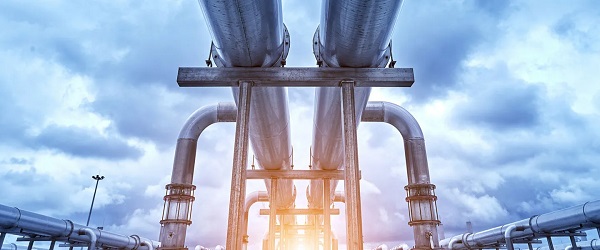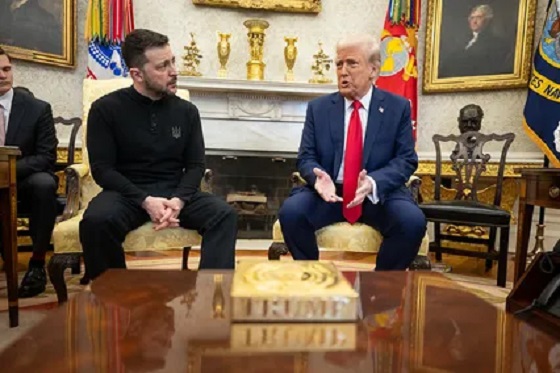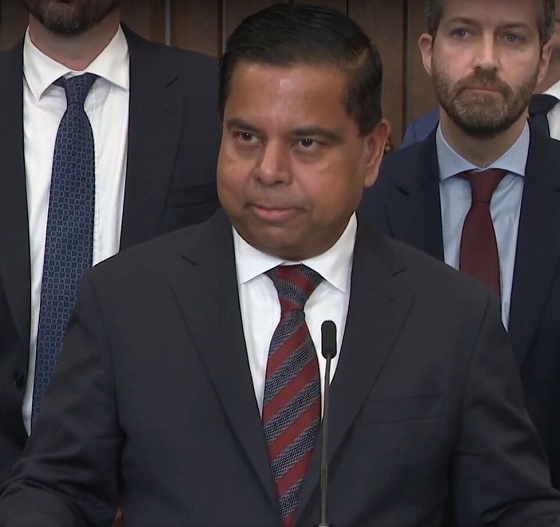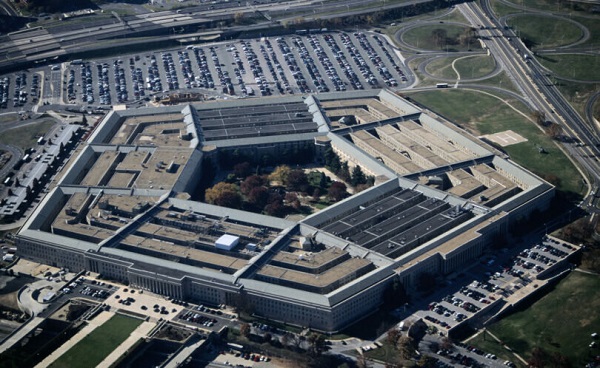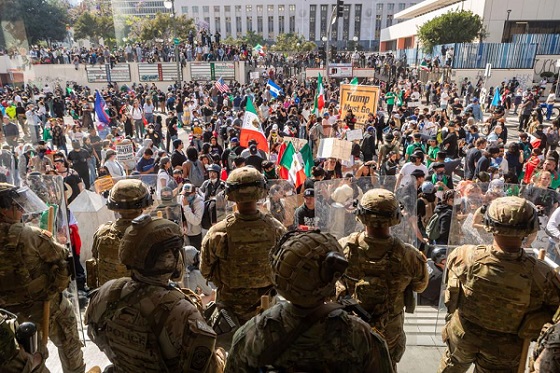Trudeau Government Hides Exploding Deficit and Fiscal Mismanagement Amid Chaos and Distraction
Well, folks, here we go again. The Trudeau government—masterclass in obfuscation, fiscal recklessness, and zero accountability—just pulled off another slick political maneuver. This time, it’s the Public Accounts of Canada 2024, a document that should be front-page news, but this news bite is buried so deep in the news cycle you’d think it was radioactive.
Here’s what’s happening: the government dropped its final, audited financial statements for the fiscal year on the last day of the parliamentary sitting session, when no one’s watching. Why? Because it’s bad. Really bad. Let’s connect the dots.
First, we had the Fall Economic Statement released just yesterday, a forward-looking document that’s basically a glossy brochure for Trudeau’s latest spending spree. That’s what the media focused on. But the Public Accounts—that’s where you see the hard, cold truth: the deficit is exploding, hitting $61.9 billion, and Canada’s finances are way past the so-called “guardrails” Trudeau and Freeland promised us.
Let’s not forget, those guardrails were supposed to limit deficits to $40 billion, but Trudeau blew right past that, overspending by more than $20 billion. And now they’re scrambling to hide the numbers because they know Canadians will not tolerate this reckless fiscal mismanagement any longer.
Ah, yes, Chrystia Freeland—the “fiscally responsible” finance minister—who just resigned in the middle of this chaos. What are the odds? She’s out, claiming “irreconcilable differences” with Trudeau’s economic policies. Translation: she knew the books are in tatters, and she didn’t want her name on them when the inevitable reckoning comes.
Now ask yourself: if everything was fine, if Canada’s economy was strong and the government was keeping its promises, wouldn’t Trudeau and his pals want to shout this from the rooftops? Wouldn’t they want the opposition to read every page of those Public Accounts? Instead, they slid the report across the table on the last possible day—while the media was distracted, MPs were packing up, and Freeland was running for the hills.
This is the oldest trick in the book. When governments screw up, they don’t admit it. They bury the evidence, release it late, or throw out a flashy distraction. Trudeau just did all three in one week: the Fall Economic Statement, full of nice words but exposing Trudeau’s reckless spending; Chrystia Freeland’s resignation, a clear sign even she wanted no part of it; and Anita Anand quietly releasing the Public Accounts on the last day of the sitting session, hoping no one would notice as Trudeau’s crumbling leadership sucks up all the oxygen in the news cycle.
What’s in those Public Accounts that Trudeau doesn’t want you to see? Deficits far larger than what he promised? Ballooning spending on programs that are failing Canadians? Spiraling interest costs on our record-breaking debt? Likely all of the above.
Here’s the bottom line: Trudeau’s government has lost control of the country’s finances. They’re driving Canada into economic oblivion, and when the consequences hit, it won’t be politicians who pay the price. It’ll be hardworking Canadians—your taxes, your savings, your livelihoods.
And what does Trudeau do? He hides the truth, covers it up, and hopes you’re too distracted to care. This is what contempt for democracy looks like, and it’s a disgrace. Canadians deserve better.
That’s the real story here—Trudeau’s government has a deficit of trust, a deficit of competence, and now, a fiscal deficit so big it makes Freeland want to quit. You couldn’t make it up if you tried.
Stay tuned, folks, because this isn’t over. When the numbers come out, they’ll tell a story Trudeau can’t hide forever—and that story won’t be pretty.
What is the Public Accounts of Canada?
The Public Accounts of Canada is the official, audited financial report of the Government of Canada, providing a final and comprehensive overview of the federal government’s finances for the fiscal year, which runs from April 1 to March 31.
- This document is produced annually by the Receiver General for Canada and is audited by the Auditor General of Canada to ensure its accuracy, reliability, and adherence to public sector accounting standards.
- It includes detailed information about revenues, expenditures, deficits or surpluses, debt, and all financial activities of government departments, agencies, and Crown corporations.
The Public Accounts is a backward-looking document: it reports the final, audited numbers of what has already happened financially over the previous fiscal year.
How is it Different from the Fall Economic Statement?
The Fall Economic Statement is a forward-looking financial update presented by the government midway through the fiscal year, typically in November or December. It outlines the government’s current economic outlook, updates revenue and spending projections, and provides an estimate of deficits or surpluses for the upcoming years.
Key Differences Between the Public Accounts and the Fall Economic Statement
The Public Accounts of Canada and the Fall Economic Statement serve distinct purposes in the government’s financial reporting, primarily differing in their focus, timing, and level of scrutiny.
- Timeframe:
The Public Accounts are backward-looking, presenting the final, audited financial results for the previous fiscal year (April 1 to March 31). In contrast, the Fall Economic Statement is forward-looking, providing forecasts and plans for the current and upcoming fiscal years.
- Purpose:
The Public Accounts offer a definitive and detailed overview of the government’s financial performance, focusing on accountability and transparency. It includes actual revenues, expenditures, deficits, and debt levels. Meanwhile, the Fall Economic Statement serves as a mid-year economic and fiscal update, often outlining new spending initiatives, policies, and projections for future budgets.
- Audit Status:
A key distinction is that the Public Accounts are audited by the Auditor General of Canada. This means the numbers are verified and considered reliable. In contrast, the Fall Economic Statement consists of projections prepared by the Department of Finance and is not independently audited.
- Content:
The Public Accounts present actual, finalized financial data, including where taxpayer money was spent, how much debt was accumulated, and whether the deficit or surplus matched previous promises. The Fall Economic Statement, however, focuses on estimates—projecting government spending, deficits, and economic growth into the future.
- Timing:
Traditionally, the Public Accounts are tabled in the fall, typically between late September and October. This timing ensures that Parliament and the public have an opportunity to analyze the government’s financial performance before the year ends. The Fall Economic Statement, on the other hand, is released later in the fall, usually in November or December, as a political and economic update.
The Bottom Line
The Public Accounts of Canada is about facts and accountability, providing hard, audited numbers on what the government actually did with its finances. The Fall Economic Statement is about forecasts and priorities, giving Canadians a sense of where the government intends to go financially and politically. While both are important, only the Public Accounts holds the government accountable for its actual financial record.
Why it Matters
- The Public Accounts hold the government accountable for its actual spending and deficits. Because they are audited, these numbers are considered the final word on the government’s fiscal performance.
- The Fall Economic Statement, however, is a political document. It forecasts future spending, reflects policy priorities, and often contains new announcements or programs. While it gives an idea of where the government thinks finances are headed, it’s not final or independently audited.
Final Thoughts
The Public Accounts of Canada is a finalized, audited report that shows where the government’s money actually went—the truth, the real numbers, no spin, no glossy brochures. It’s the hard, cold record of how this government spent your hard-earned tax dollars. The Fall Economic Statement, by contrast, is just a wish list—a forward-looking document full of lofty promises, political spin, and projections that rarely match reality. One is about accountability. The other is about politics and promises.
Both matter, but only one tells Canadians the hard truth about the state of our country’s finances. And let’s be clear: this Public Accounts report isn’t going away. Come the next session, the Public Accounts Committee will be digging through every page of this government’s fiscal mismanagement. They’ll expose what Trudeau, Freeland, and now LeBlanc have done to this country’s finances—runaway deficits, bloated spending, mountains of debt our kids will have to pay off.
And where is the NDP in all this? They’ll criticize just enough to keep up appearances, but let’s not pretend they’re not part of the problem. They’ve traded your children’s future for a seat at Trudeau’s crumbling table. For what? A dental plan? A plan that sounds great on paper, but let’s face it: what good is getting your teeth cleaned when you can’t afford to put food on the table? What good is a government that pretends to care about affordability while driving this country further into debt?
Canadians deserve better than this. Our families, our children, and our seniors deserve better. This country was built on the promise of hard work, sacrifice, and the dream of a better life for the next generation. But that dream is being stolen—piece by piece—by a government with no respect for fiscal responsibility, no sense of accountability, and no real plan for the future. Instead, they’re mortgaging your kids’ future, spending money we don’t have on programs we can’t afford, all to cling to power a little longer.
This is about more than budgets and deficits. This is about Canada—about the values that built this country. We are a nation of workers, builders, and innovators. We are a people who believe in living within our means, taking responsibility for ourselves and our families, and handing something better to the next generation. That’s what makes Canada strong. And that’s what this government is destroying—recklessly, selfishly, and without shame.
Canadians are tired of the misplaced priorities. Tired of being told there’s no money for veterans, farmers, or small businesses while this government burns through billions on their pet projects and political handouts. Tired of watching their taxes go up, their cost of living skyrocket, and their dreams slip further and further out of reach.
It’s time to stop this madness. Canadians deserve a government that respects their sacrifices, lives within its means, and understands that every dollar it spends belongs to you—not them. This country is not Justin Trudeau’s personal playground. It’s your country. It’s our country. And it’s time to take it back.
We need an election. Canadians need to send a message to this government that enough is enough. We will not stand by while they gamble away our future. We will not let them bury the truth in backroom releases and holiday distractions. This is our Canada, and it’s time to fight for it. For our families, for our future, and for the country we love.
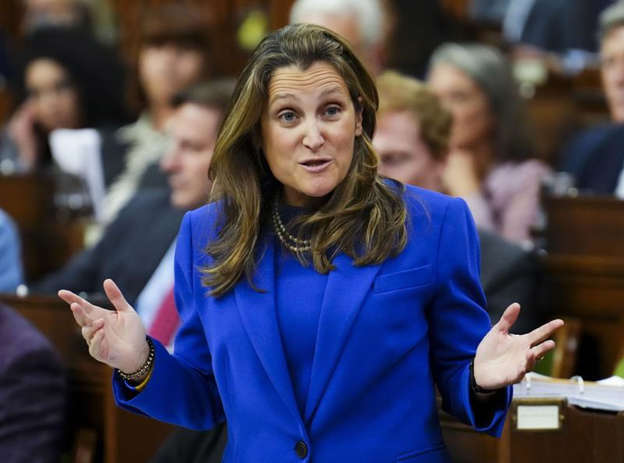




 Ken-Peacock- B.C. Chamber of Commerce annual gathering in Nanaimo.
Ken-Peacock- B.C. Chamber of Commerce annual gathering in Nanaimo.


